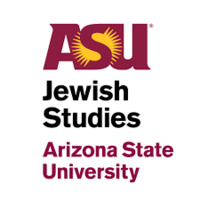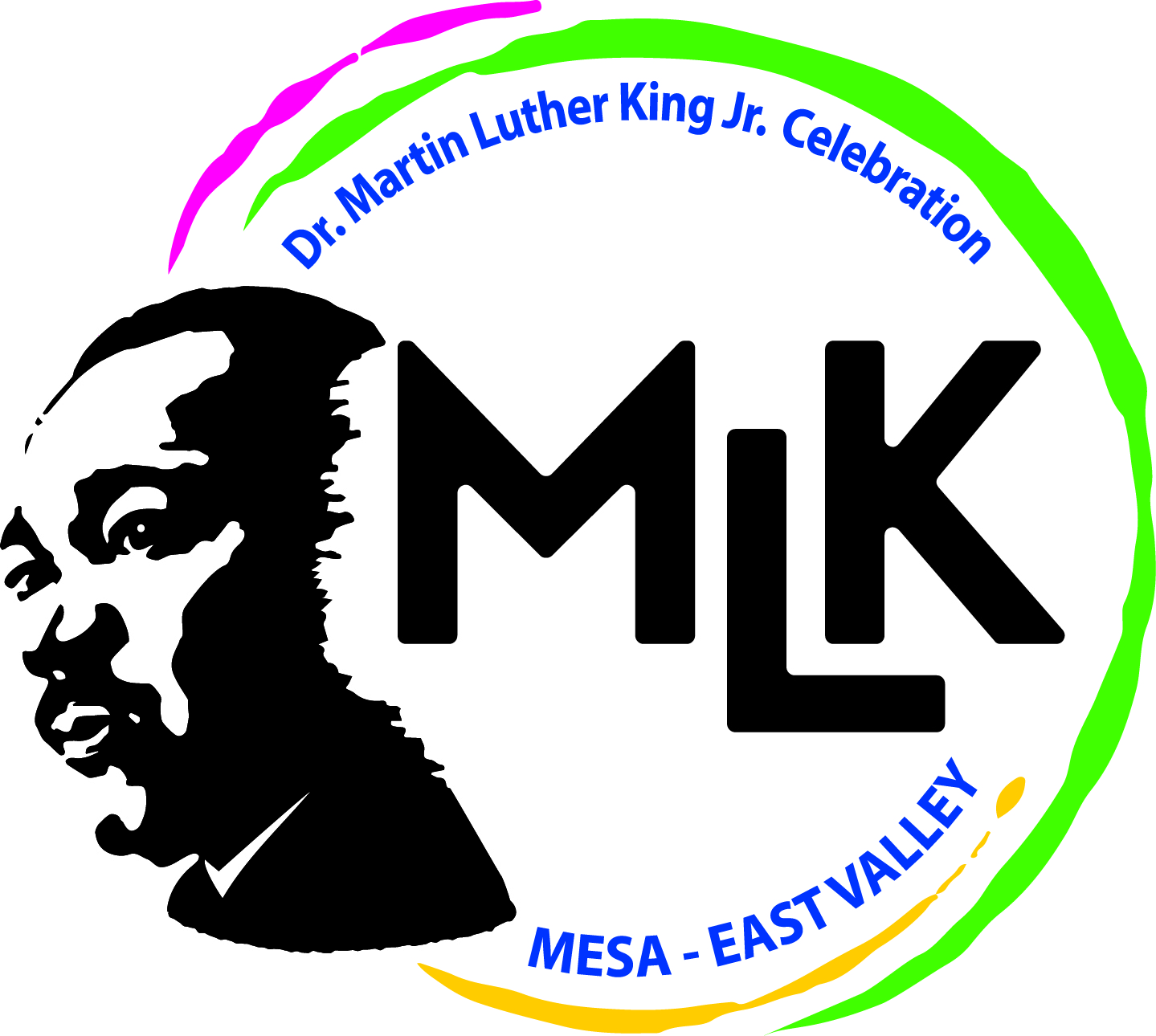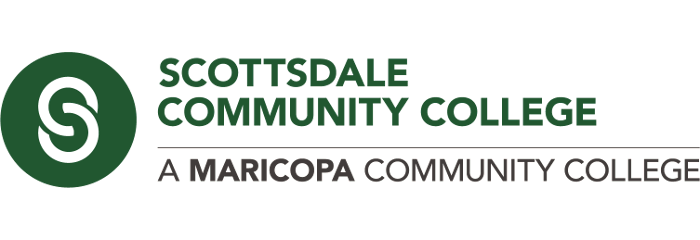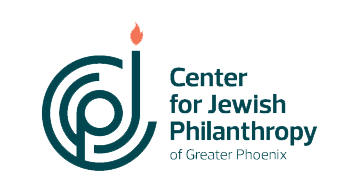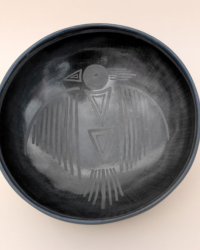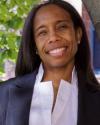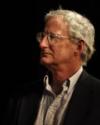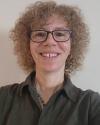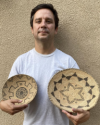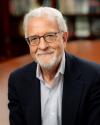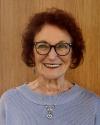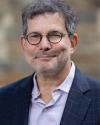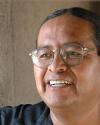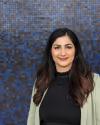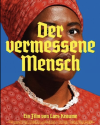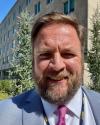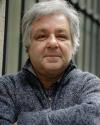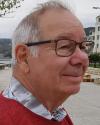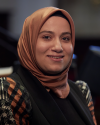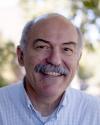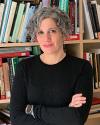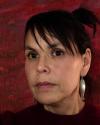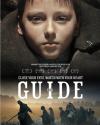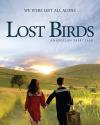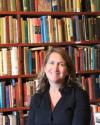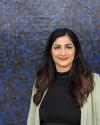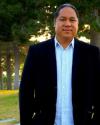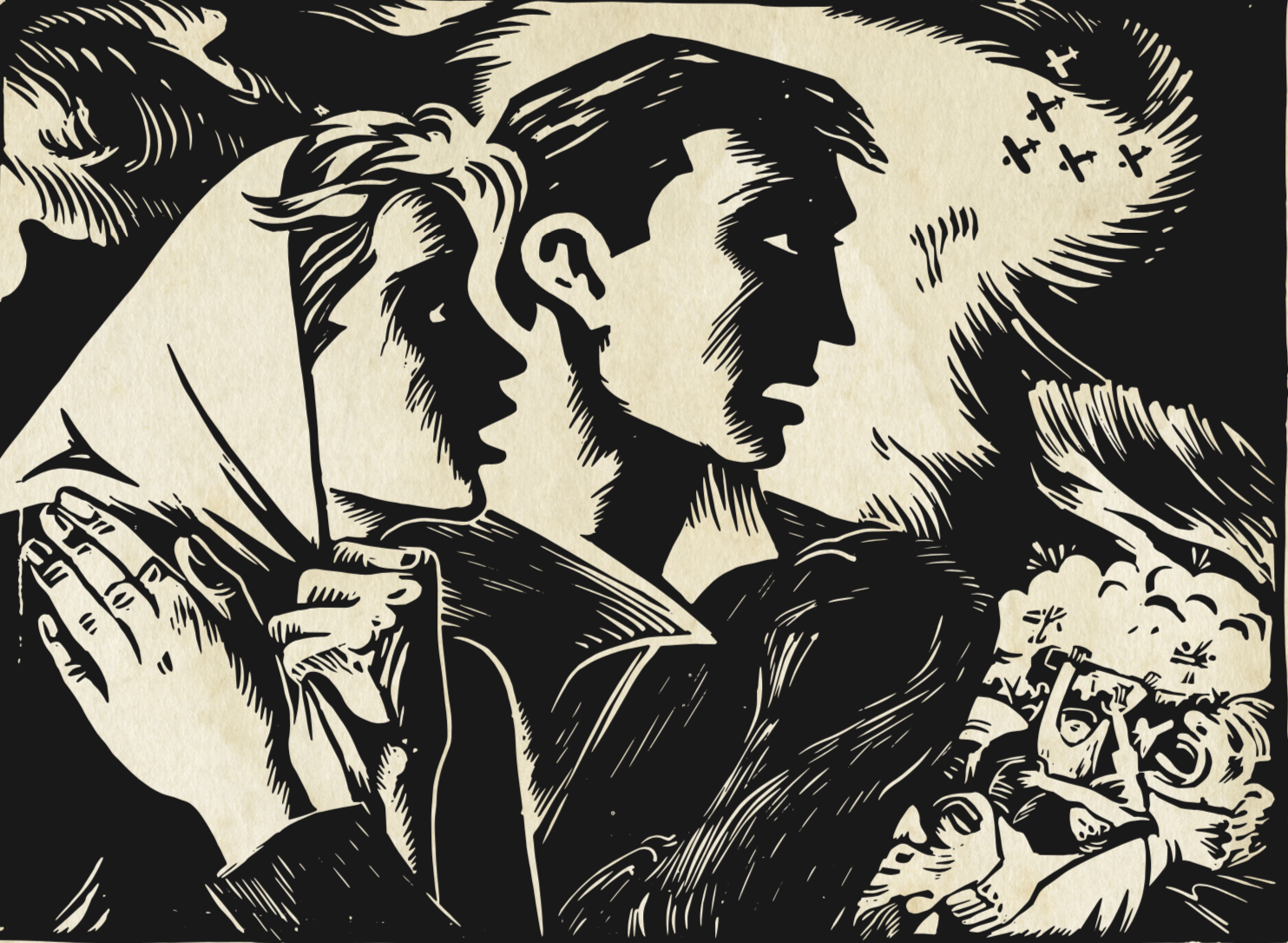
Rosenbluth Family Charitable Foundation Genocide Awareness Week
April 15-19, 2024
#NotOnOurWatch #GAW2024
Not on Our Watch
The 12th Rosenbluth Family Charitable Foundation Genocide Awareness Week is a series of lectures, exhibits and storytelling by distinguished survivors, scholars, politicians, activists, artists, humanitarians and members of law enforcement. This week-long event seeks to address how we, as a global society, confront violent actions and current and ongoing threats of genocide throughout the world, while also looking to the past for guidance and to honor those affected by genocide.
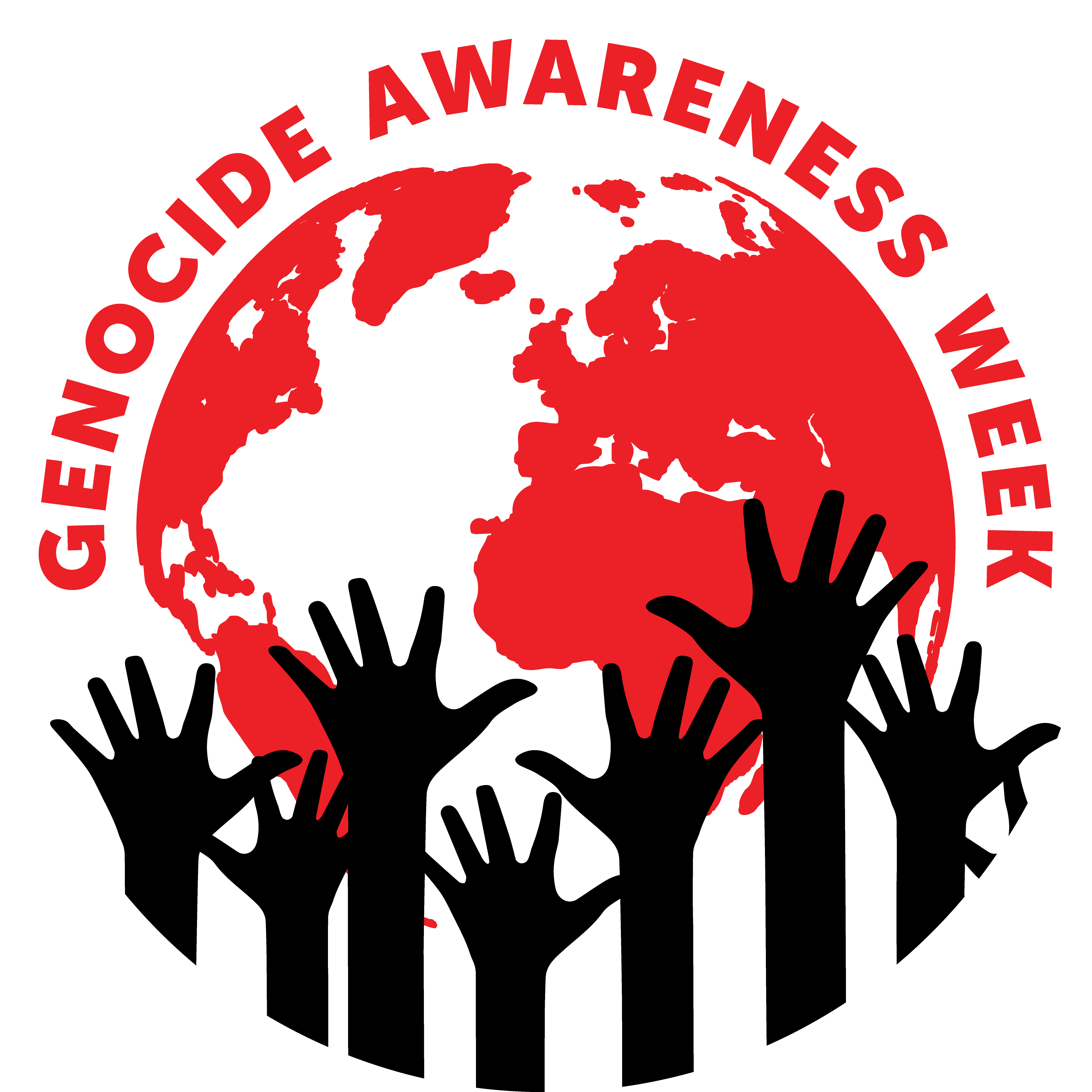
Nationalism, State Violence and Genocide
This year’s conference theme of nationalism, state violence and genocide revolves around the role of the state in facilitating and shaping the perpetration of genocidal violence. By focusing on the genocidal state, Genocide Awareness Week 2024 seeks to explore and examine different forms of authoritarian and exclusionary forms of nationalism; how extremist form of national identity are constructed and maintained; race and racial science; cultural erasure; religious nationalism, and how mass violence is engineered and facilitated by genocidal states using technology and propaganda and other related topics.
As in previous years, our approach invites a range of academic experts, activists, survivors and governmental officials to provide presentations and discussions from a variety of perspectives. Our approach is also comparative in orientation with a range of historic and contemporary examples that highlight the underlying patterns, processes and the continuities and discontinuities between different cases of genocide. These include the Holocaust, the Armenian Genocide, Rwanda and Bosnia among various other well-known and lesser-known case studies. It is also intended that such a wide-ranging and comparative approach will help provide insights relevant to current events and trends at the local, national and international levels.
April 15-19, 2024
Register now*
Rosenbluth Family Charitable Foundation Genocide Awareness Week
*Please note that this registration is only for events hosted by the School of Historical, Philosophical and Religious Studies at Arizona State University Tempe Campus on April 15 - 18.
Assyrians and Native Americans: Cultural Revitalization Through Incantation Bowls
As part of Genocide Awareness Week, in this unique exhibit, artists Esther Elia and Associate Professor Clarence Cruz tell the tales of the Assyrians (the indigenous people of Iran, Iraq, Syria and Turkey) and Native Americans. Both nations, having experienced persecution, find themselves expressing a desire for perseverance through beautiful incantation (prayer) bowls, and paintings.
March 25- April 18, 2024 | 9 a.m. - 5 p.m.
School of Human Evolution and Social Change (SHESC)- The Innovation Gallery, 900 S. Cady Mall, Tempe, 85281
Schedule
Phoenix Metro
Monday, April 15
11:30 a.m. - 1 p.m.
Lattie F. Coor Hall 4403, ASU Tempe Campus (975 S. Myrtle Ave Tempe, AZ 85281
Living in the Legacy, Growing Up with Genocide
Student panel hosted by:
Christine Holman
Arizona State University
As a Senior Lecturer in the School of Social Transformation, Chris Holman teaches a variety of graduate and undergraduate courses in the area of Justice and Social Inquiry. These classes range in topics from serial killers to alternative tourism and include both online and on-site courses. Additionally, Holman has taught every core course in Justice and Social Inquiry since she began teaching at Arizona State University in 2006. In addition to teaching undergraduates, Holman developed and facilitated the School of Social Transformation's Graduate Teaching Development Program from 2014-2019. Recognized for her teaching, Holman was nominated for both the ASU Centennial Professor Award and the College of Liberal Arts and Sciences Outstanding Lecturer/Instructor Award (twice). She received the Graduate Teaching Excellence Award in 2007-2008. In addition to teaching, Holman is the faculty advisor for ASU's Amnesty International student group, has chaired and/or served on numerous undergraduate honors thesis committees at ASU and directed the Justice and Social Inquiry Writing Mentorship Program in 2008-2009.
Timothy Langille
Arizona State University
Tim Langille completed his doctorate at the University of Toronto in the Study of Religion and Jewish Studies. His research focuses on trauma and memory, genocide in antiquity, the Jewish Legion during World War I and Purim plays in post-Holocaust DP camps. At Arizona State University, Langille primarily teaches courses on Hebrew Bible, Jewish history, comparative genocide and religion and violence, nationalism and ethnic conflict. He has participated in summer institutes and seminars at the Holocaust Educational Foundation (Northwestern University), Zoryan Institute (University of Toronto) and the U.S. Holocaust Memorial Museum. These programs have focused on pedagogy in Holocaust studies, genocide studies and Jewish studies. He is currently working on a book manuscript on genocide in antiquity. He is a member of the board of directors for Genocide Awareness Week.
Alex Hinton
Rutgers University
Alex Hinton is Distinguished Professor of Anthropology, Director of the Center for the Study of Genocide and Human Rights and UNESCO Chair in Genocide Prevention at Rutgers University. He is the award-winning author or editor of seventeen books, including, Why Did They Kill? Cambodia in the Shadow of Genocide, The Justice Facade: Trials of Transition in Cambodia and Man or Monster? The Trial of a Khmer Rouge Torturer. In recognition of his work on genocide, the American Anthropological Association selected Hinton as the recipient of the 2009 Robert B. Textor and Family Prize for Excellence in Anticipatory Anthropology. He was also awarded the association’s 2022 Anthropology in the Media Award. Professor Hinton is a past President of the International Association of Genocide Scholars (2011-13), a Member/Visitor at the Institute for Advanced Study at Princeton (2011-13) and co-convener of the Global Consortium on Bigotry and Hate (2019-25). His most recent books are Perpetrators: Encountering Humanity’s Dark Side and two interlinked texts, It Can Happen Here: White Power and the Rising Threat of Genocide in the US and Anthropological Witness: Lessons from the Khmer Rouge Tribunal, which centers on his 2016 experience testifying as an expert witness at the Khmer Rouge Tribunal in Cambodia. A public anthropologist, Hinton regularly appears in the media and has been invited to speak on six continents across the globe.
Kate Temoney
Montclair State University
Kate E. Temoney is an Associate Professor and Chair of the Department of Religion at Montclair State University. She is a member of the United States Holocaust Memorial Museum Committee on Ethics, Religion and the Holocaust and an editor for Genocide Studies and Prevention: An International Journal. Her scholarship examines the intersections of religion, human rights, genocide and theory of history, and she has presented to government agencies, institutes and non-governmental agencies. Her publications appear in edited books as well as journals such as: Genocide Studies and Prevention; the Journal of Religious Ethics; Law and Religion in Africa Series; and SHISO (a Japanese humanities journal). In progress are a co-authored book chapter for the Oxford Handbook on History and Memory; a co-edited focus issue for the Journal of Interreligious Studies; and an article for the Journal of Hostility, Anger, Repression and Malice (HARM).
7 - 8:30 p.m.
Valley of the Sun Jewish Community Center (12701 N. Scottsdale Rd., Scottsdale, AZ 85254)
"From Kishinev to Sderot: Considering 'Spectacular Violence' and Mass Murder against Jewish Communities"
Edward Westermann
Texas A&M University-San Antonio
Edward B. Westermann received his doctorate from the University of North Carolina, Chapel Hill and is a Regents Professor of History and a Piper Professor of 2023 at Texas A&M University-San Antonio. He has published extensively on the Holocaust and military history, including Hitler’s Ostkrieg and the Indian Wars: Comparing Genocide and Conquest, Hitler’s Police Battalions: Enforcing Racial War in the East and Flak: German Anti-aircraft Defenses, 1914-1945. He is a former Fulbright Fellow at the Free University of Berlin, a three-time fellow of the German Academic Exchange Service, a Fellow of Keene State College’s Genocide Studies and Prevention Program and a J.B. and Maurice C. Shapiro Fellow at the USHMM. His latest book, Drunk on Genocide: Alcohol and Mass Murder in Nazi Germany appeared with Cornell University Press in 2021 and received the 2023 Yad Vashem International Book Prize for Holocaust Research. From January 2019 until September 2021, he served as a Commissioner on the Texas Holocaust and Genocide Commission.
Presented by the Center for Jewish Studies at Arizona State University.
Tuesday, April 16
All events on this day are hosted at the School of Historical, Philosophical and Religious Studies in Lattie F. Coor Hall on Arizona State University Tempe Campus unless noted otherwise
8:30 - 9 a.m.
Lattie F. Coor Hall, 4403
Conference Welcome
9 - 10:15 a.m.
Lattie F. Coor Hall, 4403 + Online
Survivor Testimony: 1994 Rwandan Genocide
Providence Nkurunziza
Providence Nkurunziza is a child survivor of the 1994 genocide against Tutsis in Rwanda. She is an author, speaker and advocate, as well as a Commissioner with the Texas Holocaust Genocide and Anti-Semitism Advisory Commission.
Five of her siblings and her two parents, along with the rest of her extended family members, were wiped out during the genocide against Tutsis. She was 11.
As a survivor, Providence considers it her responsibility to bear witness to the atrocities of genocide, where a million innocent lives were claimed in only 100 days, to save the next generation from falling into the same trap of experiencing such sinister events, since nobody is immune to the genocide.
As an advocate, she is also proud to be a voice for women survivors living with HIV/AIDS and other long-term illnesses contracted through rape and other violence during the genocide.
Her past speaking engagements have included: the United Nations Headquarters in Geneva, New York and Vienna; the Swedish parliament; three of the four Holocaust museums in Texas and many universities, libraries and churches.
10:30 - 11:45 a.m.
Lattie F. Coor Hall, 4403 + Online
The Genocidal State
Panelists:
Alex Hinton
Rutgers University
Alex Hinton is Distinguished Professor of Anthropology, Director of the Center for the Study of Genocide and Human Rights and UNESCO Chair in Genocide Prevention at Rutgers University. He is the award-winning author or editor of seventeen books, including, Why Did They Kill? Cambodia in the Shadow of Genocide, The Justice Facade: Trials of Transition in Cambodia and Man or Monster? The Trial of a Khmer Rouge Torturer. In recognition of his work on genocide, the American Anthropological Association selected Hinton as the recipient of the 2009 Robert B. Textor and Family Prize for Excellence in Anticipatory Anthropology. He was also awarded the association’s 2022 Anthropology in the Media Award. Professor Hinton is a past President of the International Association of Genocide Scholars (2011-13), a Member/Visitor at the Institute for Advanced Study at Princeton (2011-13) and co-convener of the Global Consortium on Bigotry and Hate (2019-25). His most recent books are Perpetrators: Encountering Humanity’s Dark Side (Stanford, 2023) and two interlinked texts, It Can Happen Here: White Power and the Rising Threat of Genocide in the US and Anthropological Witness: Lessons from the Khmer Rouge Tribunal, which centers on his 2016 experience testifying as an expert witness at the Khmer Rouge Tribunal in Cambodia. A public anthropologist, Hinton regularly appears in the media and has been invited to speak on six continents across the globe.
Edward Westermann
Texas A&M University-San Antonio
Edward B. Westermann received his doctorate from the University of North Carolina, Chapel Hill and is a Regents Professor of History and a Piper Professor of 2023 at Texas A&M University-San Antonio. He has published extensively on the Holocaust and military history, including Hitler’s Ostkrieg and the Indian Wars: Comparing Genocide and Conquest, Hitler’s Police Battalions: Enforcing Racial War in the East and Flak: German Anti-aircraft Defenses, 1914-1945. He is a former Fulbright Fellow at the Free University of Berlin, a three-time fellow of the German Academic Exchange Service, a Fellow of Keene State College’s Genocide Studies and Prevention Program and a J.B. and Maurice C. Shapiro Fellow at the USHMM. His latest book, Drunk on Genocide: Alcohol and Mass Murder in Nazi Germany appeared with Cornell University Press in 2021 and received the 2023 Yad Vashem International Book Prize for Holocaust Research. From January 2019 until September 2021, he served as a Commissioner on the Texas Holocaust and Genocide Commission.
Elisabeth King
New York University
Elisabeth King is Professor of International Education and Politics at New York University, Vice Dean for Faculty at NYU’s Steinhardt School of Culture, Education, and Human Development, and Founding Director of NYU’s minor in Peace and Conflict Studies. Her research focuses on war, peace, development and education in ethnically diverse and conflict-affected contexts. She is author (with Cyrus Samii) of Diversity, Violence and Recognition: How Recognizing Ethnic Identity Promotes Peace, winner of the International Studies Association’s 2022 Best Book Award and From Classrooms to Conflict in Rwanda, named an Outstanding Academic Title by the American Libraries Association. Other recent work appears in Journal of Peace Research, World Development and African Studies Review. King’s work has been funded by grants from such organizations as the United States Institute of Peace, the Spencer Foundation and the Folke Bernadotte Academy. She has conducted fieldwork in Kenya, Liberia, the Philippines and Rwanda, among others, using diverse research methods ranging from in-depth qualitative interviews and focus groups, to randomized field experiments and surveys. She has consulted for organizations including Innovations for Poverty Action, UNICEF, USAID, the Millennium Challenge Corporation and the MasterCard Foundation. She works with policy-makers to link her scholarship with on-the-ground practice and programming. King received her PhD in political science from the University of Toronto and was a postdoctoral fellow at Columbia University.
Moderator: Kate Temoney
Montclair State University
Kate E. Temoney is an Associate Professor and Chair of the Department of Religion at Montclair State University. She is a member of the United States Holocaust Memorial Museum Committee on Ethics, Religion, and the Holocaust and an editor for Genocide Studies and Prevention: An International Journal. Her scholarship examines the intersections of religion, human rights, genocide and theory of history, and she has presented to government agencies, institutes and non-governmental agencies. Her publications appear in edited books as well as journals such as: Genocide Studies and Prevention; the Journal of Religious Ethics; Law and Religion in Africa Series; and SHISO (a Japanese humanities journal). In progress are a co-authored book chapter for the Oxford Handbook on History and Memory; a co-edited focus issue for the Journal of Interreligious Studies; and an article for the Journal of Hostility, Anger, Repression and Malice (HARM).
1:30 - 2:45 p.m.
Lattie F. Coor Hall, 4403 + Online
Engineering Mass Violence Through Technology and Propaganda
Panelists:
Eric Katz
New Jersey Institute of Technology
Eric Katz is Professor Emeritus of Philosophy at the New Jersey Institute of Technology and Distinguished Senior Fellow at the Institute of Philosophy and Public Policy at George Mason University. He is the author of Anne Frank’s Tree: Nature’s Confrontation with Technology, Domination, and the Holocaust and Nature as Subject: Human Obligation and Natural Community. He is the editor of Death by Design: Science, Technology, and Engineering in Nazi Germany.
Faheem Hussain
Arizona State University
Faheem Hussain is an interdisciplinary researcher with expertise in Information and Communication Technology (ICT), Global Development, Human Displacement, and Public Policy. Faheem is currently working as an Assistant Professor in the School for the Future of Innovation in Society (SFIS) at the College of Global Futures, Arizona State University. He received his PhD in Engineering and Public Policy from Carnegie Mellon University. Faheem's current research projects involve impact and innovation analyses of digital technologies and mobility aids for Rohingya refugees; formulation of online education and risk mitigating strategies for resettled Afghan refugees; and development of an inclusive digital afterlife ecosystem for the global south. Besides academia, he works as an ICT for Development expert with United Nations, USAID and other key development agencies and think tanks in Asia, Sub-Saharan Africa and North America.
Claudia ElDib
Arizona State University
Claudia ElDIb is currently an Arizona State University PhD Candidate. Her work focuses on technology and state violence before and during the Rwandan Genocide. She has presented her work at conferences in the United States and Africa, during which she emphasized the role of media technology in the conduct of genocide.
Moderator: Alex Alvarez
Northern Arizona University
Dr. Alex Alvarez is a Professor in the Department of Criminology and Criminal Justice at Northern Arizona University. From 2001 until 2003 he was the founding Director of the Martin-Springer Institute for Teaching the Holocaust, Tolerance, and Humanitarian Values. In 2017-2018, he served as the Ida E. King Distinguished Visiting Scholar in Holocaust and Genocide Studies at Stockton University. His main areas of study are in the areas of collective and interpersonal violence. His first book, Governments, Citizens, and Genocide, was published by Indiana University Press in 2001. His other books include Murder American Style, Violence: The Enduring Problem, Genocidal Crimes and Native America and the Question of Genocide. His latest book, Unstable Ground: Climate Change, Conflict, and Genocide was published in July 2017 with Rowman & Littlefield. He has also served as an editor for the journal Violence and Victims, was a founding co-editor of the journal Genocide Studies and Prevention, is an editor for Genocide Studies International and has served as an editorial board member for a number of journals. He has been invited to speak and present his research across the U.S. and in various countries such as Austria, Bosnia, Canada, England, Germany, Lithuania, the Netherlands and Sweden.
3 - 4:15 p.m.
Lattie F. Coor Hall, 4403 + Online
Race, Racial Science and the State*
Panelists:
Charisse Burden-Stelly
Wayne State University | Charles Warren Center for Studies in American History at Harvard University
Dr. Charisse Burden-Stelly is an Associate Professor of African American Studies at Wayne State University and a 2023-2024 Visiting Scholar at the Charles Warren Center for Studies in American History at Harvard University. She is the author of Black Scare/Red Scare: Theorizing Capitalist Racism in the United States, the co-author of W.E.B. Du Bois: A Life in American History and the co-editor of Organize, Fight, Win: Black Communist Women’s Political Writings and of Reproducing Domination: On the Caribbean Postcolonial State. Dr. Burden-Stelly has published in peer-reviewed journals including Small Axe, Souls, Du Bois Review, Socialism & Democracy, International Journal of Africana Studies and CLR James Journal and in popular publications like Monthly Review, Boston Review, Essence magazine, The Nation, Teen Vogue, Black Perspectives and Black Agenda Report. She is a member of the Black Alliance for Peace.
Jonathan Wiesen
University of Alabama at Birmingham
Jonathan Wiesen is a Professor of History and Department Chair at the University of Alabama at Birmingham. He did his undergraduate work in history at the University of California at Berkeley and the University of Sussex and he received his PhD in history from Brown University in 1998. Before coming to UAB, he was visiting assistant professor at Colgate University and Distinguished professor and chair at Southern Illinois University. He is the author of West German Industry and the Challenge of the Nazi Past, 1945-1955, which won a book prize from the Hagley Museum and Library and the Business History Conference. He is also co-editor with Pamela Swett and Jonathan Zatlin of Selling Modernity: Advertising in Twentieth Century Germany and author of Creating the Nazi Marketplace: Commerce and Consumption in the Third Reich and Nazi Germany: Society Culture, and Politics. His work has appeared in a number of scholarly journals, including Central European History, Holocaust and Genocide Studies, Journal of Contemporary History and the German Studies Review and he has received research fellowships from the German Academic Exchange, The Alexander von Humboldt Foundation and the Gerda Henkel Foundation, among others. He is currently writing a book on U.S. anti-Back racism in the German imagination from 1918-1968 and is most recently the author of American Lynching in the Nazi Imagination: Race and Extra-Legal Violence in 1930s Germany History, which won the 2020 Hans Rosenberg article prize.
Maurice Crandall
Arizona State University
Maurice Crandall is a citizen of the Yavapai-Apache Nation of Camp Verde, Arizona. He joined the School of Historical, Philosophical and Religious Studies at ASU as Associate Professor of History in August 2022. He is a historian of the Indigenous peoples of the U.S.-Mexico Borderlands. Before coming to Arizona State, he was Assistant Professor of Native American and Indigenous Studies at Dartmouth College. Crandall's 2019 monograph, These People Have Always Been a Republic: Indigenous Electorates in the U.S.-Mexico Borderlands, 1598–1912, won the 2020 Caughey Western History Prize for the most distinguished book on the history of the American West, the 2020 Weber-Clements Prize for best non-fiction book on Southwestern America and a 2020 Southwest Book Award.
Moderator: Curtis Austin
Arizona State University
Curtis Austin is an Associate Professor in the School of Philosophical Historical and Religious Studies. He studies African American history with a focus on the Civil Rights and Black Power Movements. Named a Choice Outstanding Academic Title, his first book, Up Against the Wall, examines the history of the Black Panther Party. Austin recently completed a second book entitled “Dare to Struggle: A History of the Black Power Movement.” He is currently writing “Dare to Win: A History of the San Francisco 8.” The SF8 were former members of the Black Panther Party arrested in 2007 for the 1971 homicide of a San Francisco police officer. Having jailed the men in 2005 for refusing to cooperate with a grand jury, state and federal authorities, in a coordinated nationwide effort in 2007, re-arrested the eight men and held them on bonds totaling more than thirteen million dollars. “Dare to Win” examines the motivations behind their arrests and the history of the men’s involvement in the Black Panther Party and its underground apparatus the Black Liberation Army. It also illuminates the years of community organizing by those who supported their efforts to remain free. In 2011, the SF8 won its legal battle when the courts dismissed all charges.
Co-sponsored by the SHPRS Anti-Racism Committee and the Mesa-East Valley Martin Luther King, Jr. Committee.
6:30 - 8 p.m.
Lattie F. Coor Hall, L1-20 + Online
Uprooting and Displacement: Reflections on the Holocaust, Israel-Palestine and the War in Gaza
Omer Bartov
Brown University
Omer Bartov is the Samuel Pisar Professor of Holocaust and Genocide Studies at Brown University. Born in Israel and educated at Tel Aviv University and St. Antony's College, Oxford, his early research concerned war crimes in World War II, the links between war and genocide and representations of antisemitism in 20th-century cinema. More recently he has focused on interethnic relations, violence and population displacement in Europe and Palestine. His latest books include Anatomy of a Genocide: The Life and Death of a Town Called Buczacz, Tales from the Borderlands: Making and Unmaking the Galician Past and Genocide, The Holocaust and Israel-Palestine: First-Person History in Times of Crisis. He is currently writing a book tentatively titled "The Broken Promise: A Personal-Political History of Israel and Palestine,” which is dedicated to investigating the first generation of Jews and Palestinians in Israel, a generation to which he also belongs. His novel, The Butterfly and the Axe, was published in 2023 in the United States and Israel.
Wednesday, April 17
All events on this day are hosted at the School of Historical, Philosophical and Religious Studies in Lattie F. Coor Hall on Arizona State University Tempe Campus unless noted otherwise.
9 - 10:15 a.m.
Lattie F. Coor Hall, 4403 + Online
Survivor Testimony: Second-generation Holocaust survivor
Monique Mendel
Monique Mendel is a second-generation Holocaust survivor born in Brussels, Belgium in 1947. Her mother and father, Meta Neufeld and Gunther Mendel jumped off separately from Convoy XX train, destination Auschwitz on April 17, 1943 and were hidden in an attic for eighteen months by a Belgian sympathizer.
Monique’s family immigrated to the US in 1950 where they later settled in Southern California.
Monique attended Arizona State University and earned her bachelor’s and master’s degrees in secondary business education. She taught high school and junior college courses for 30 years. She was a board member and officer of Arizona Public Service/North High School Partnership Board and served as a liaison of Tolerance Education. She also lectured and trained high school teachers in Holocaust presentations and traveled with students to the Simon Wiesenthal Museum in Los Angeles.
Her past and current activities include membership and Past President of the Phoenix Holocaust Association, PHA Education Committee, Generations After Education Committee and other volunteer activities in the community.
10:30 - 11:45 a.m.
Lattie F. Coor Hall, 4403 + Online
Exclusionary Nationalism and Identity Formation
Panelists:
Henry Theriault
Worcester State University
Henry Theriault is Associate Vice President for Academic Affairs at Worcester State University, after teaching in its philosophy department from 1998-2017, which he chaired from 2011-2017. He coordinated WSU’s Human Rights Center from 1999-2007. With specializations in Continental Philosophy and Social and Political Philosophy, Theriault researches genocide denial, genocide prevention, post-genocide victim-perpetrator relations, reparations and mass violence against women and girls. He has lectured around the world and published numerous journal articles and chapters. He is the lead author of the Armenian Genocide Reparations Study Group’s 2015 final report, Resolution with Justice and, with Samuel Totten, co-authored The United Nations Genocide Convention: An Introduction. Theriault’s work has been published in English, Spanish, Armenian, Turkish, Russian, French and Polish. In addition to various boards and committees in the field of genocide studies, Theriault served two terms as president of the International Association of Genocide Scholars (IAGS), from 2017-2019 and 2019-2021. He is founding co-editor of Genocide Studies International and co-edited IAGS’ Genocide Studies and Prevention from 2007-2012.
Anastasia Leschyshyn
McGill University
Anastasia Leshchyshyn is a PhD student at McGill University in the department of political science. She holds an MA in European and Russian Affairs from Munk School of Global Affairs at the University of Toronto and a BA in history, political science and classical civilization from the University of Toronto. Her research interests include memory politics, minority rights and judicial politics in the post-communist region and notably Ukraine.
Andrew I. Port
Wayne State University
Andrew I. Port grew up in Brooklyn, New York and now lives in Ann Arbor. Before coming to Wayne State, he taught as a lecturer at Harvard University and at Yale University, where he earned his graduate and undergraduate degrees. He also worked as a project coordinator at the Office of Human Rights in Nuremberg, Germany.
His newest book, Never Again: Germans and Genocide after the Holocaust, appeared in the spring of 2023 with the prestigious Belknap Imprint of Harvard University Press. Never Again looks at German reactions to genocide in other parts of the world after 1945, with a focus on Cambodia, Bosnia and Rwanda. Yale University's Samuel Moyn, the author of Humane and The Last Utopia: Human Rights in History, calls it “the most important study of memory, politics and the ongoing construction of public norms written in a long time.” Ian Buruma, former editor-in-chief of The New York Review of Books, describes Never Again as "fascinating, elegant, subtle, and always fair-minded." The book has already been reviewed in Times Literary Supplement, History Today, The Jerusalem Post, London Review of Books and the Süddeutsche Zeitung, one of Germany's leading national dailies.
Victor Peskin
Arizona State University
Victor Peskin is an associate professor in the School of Politics & Global Studies at Arizona State University and a senior research fellow at UC Berkeley’s Human Rights Center. His scholarship and teaching focus on international human rights, international war crimes tribunals, post-conflict state-building and diplomacy. Peskin is the author of International Justice in Rwanda and the Balkans: Virtual Trials and the Struggle for State Cooperation and the co-author of Hiding in Plain Sight: The Pursuit of War Criminals from Nuremberg to the War on Terror.
Moderator: Keith Brown
Arizona State University
Keith Brown is the Director of the Melikian Center: Russian, Eurasian and East European Studies and Professor in the School of Politics and Global Studies at Arizona State University. During 2021-22 he was on research leave as a Core Fellow at the Collegium for Advanced Studies at the University of Helsinki. He holds a PhD in anthropology from the University of Chicago and a BA in classics from Oxford University. His work focuses on history, culture and politics in the Western Balkans, with a particular emphasis on 20th century Macedonia. He has spent extended time in the region and his published works include The Past in Question: Modern Macedonia and the Uncertainties of Nation and Loyal Unto Death: Trust and Terror in Revolutionary Macedonia. Brown has received fellowships or grants for research and training from the Collegium for Advanced Studies at the University of Helsinki, the Defense Language and National Security Education Office, the US Russia Foundation, the US State Department Bureau of Intelligence and Research, the National Endowment for the Humanities, IREX, Fulbright, the Charles Mott Foundation, the Rockefeller Brothers Fund, the National Council on Eurasian and East European Research, the United States Institute of Peace, the University of Connecticut Humanities Institute, the Social Science Research Council and the British Academy.
1:30 - 2:45 p.m.
Lattie F. Coor Hall, 4403 + Online
Religious Nationalism
Panelists:
Kate Temoney
Montclair State University
Kate E. Temoney is an Associate Professor and Chair of the department of religion at Montclair State University. She is a member of the United States Holocaust Memorial Museum Committee on Ethics, Religion, and the Holocaust and an editor for Genocide Studies and Prevention: An International Journal. Her scholarship examines the intersections of religion, human rights, genocide and theory of history, and she has presented to government agencies, institutes and non-governmental agencies. Her publications appear in edited books as well as journals such as: Genocide Studies and Prevention; the Journal of Religious Ethics; Law and Religion in Africa Series and SHISO (a Japanese humanities journal). In progress are a co-authored book chapter for the Oxford Handbook on History and Memory; a co-edited focus issue for the Journal of Interreligious Studies and an article for the Journal of Hostility, Anger, Repression and Malice (HARM).
Chrissy Stroop
openDemocracy | Religion Dispatches
A weekly opinion columnist for openDemocracy and a senior correspondent for Religion Dispatches, Chrissy Stroop is also a trained academic, holding a PhD in modern Russian history and humanities from Stanford University. Stroop has bylines in Foreign Policy, DAME, Playboy, The Boston Globe, The Moscow Times and other outlets, and writes weekly essays for her Substack, The Bugbear Dispatch. Before leaving academia, Stroop taught at the Russian Presidential Academy of National Economy and Public Administration in Moscow, Russia from 2012-2015 and at the University of South Florida in Tampa from 2015-2018. Stroop was also a senior research associate with Kristina Stoeckl's Postsecular Conflicts project based at the University of Innsbruck in Austria and she is thankful to get to continue to take part in similar intellectual discussions and conferences. Both Stroop's peer-reviewed academic work and popular writing focus primarily on the intersections of religion, politics and society and specifically on the influences of authoritarian Christian ideology. A transgender woman who was raised evangelical Protestant and is now an outspoken (but pro-pluralism) atheist and social justice advocate, Stroop grew up attending Christian schools, where she was indoctrinated in the views of the Christian nationalists who are currently working to make it impossible for trans people to exist as ourselves in the United States and, arguably just as unforgivably, forced to sing Lee Greenwood's "God Bless the USA" as part of the audience sing-along that concluded the school talent shows. Stroop has been instrumental in building and raising awareness of the "exvangelical" movement and is (with Lauren O'Neal) co-editor of the anthology of personal essays Empty the Pews: Stories of Leaving the Church.
Björn Krondorfer
Northern Arizona University
Björn Krondorfer is Regents’ Professor and the Director of the Martin-Springer Institute at Northern Arizona University. As an Endowed Professor of Religious Studies, he also teaches in the Department of Comparative Cultural Studies. His field of expertise is religion, gender and culture and (post-) Holocaust and reconciliation studies. In 2007-2008, he was a guest professor at the Institute of Theology and the History of Religion at the Freie University Berlin, Germany, was a visiting faculty affiliate at the University of the Free State in South Africa and received a Senior Research Fellowship at the Vrije University in Amsterdam in 2016-2017. Since 2020, he chairs the national “Consortium of Higher Education Centers for Holocaust, Genocide, and Human Rights Studies.” He is the Vice President for the “Association for Public Religion and Intellectual Life.” In 2023, he joined the Board of Directors for “Genocide Awareness Week” and is part of the Advisory Group of the Arizona Jewish Historical Society’s new Holocaust education museum and joined the Honorary Committee for the establishment of the Social Museum of Jewish History and Heritage of Kielce.
Recent Publications include Unsettling Empathy: Working with Groups in Conflict; The Holocaust and Masculinities: Critical Inquiries into the Presence and Absence of Men; Reconciliation in Global Context: Why it is Needed and How it Works and Male Confessions: Intimate Revelations and the Religious Imagination. He also published three volumes in German on the cultural and theological legacy of the Holocaust and edited Edward Gastfriend’s My Father’s Testament: Memoir of a Jewish Teenager, 1938-1945.
Moderator: Jason Bruner
Arizona State University
Jason Bruner is an ethnographer, writer and historian studying Christians and Christianity in Sub-Saharan Africa and the United States. He is especially interested in lived religion, health, violence and globalization. His work also incorporates photography and creative nonfiction.
He recently published How to Study Global Christianity: A Short Guide for Students. With David Kirkpatrick, he co-edited Global Visions of Violence: Agency and Persecution in World Christianity. He is also engaged in a multi-modal creative and documentary project on the metro Phoenix area titled Life in the Valley.
His book, Imagining Persecution: Why American Christians Believe There is a Global War Against Their Faith, provides a genealogy of American Christian discourses of global religious violence. It gives particular attention to the ways that religious persecution has come to frame American perceptions of Christianity worldwide. His first book, Living Salvation in the East African Revival in Uganda, is a cultural history of a Christian revival movement in Uganda from the early 1930s to the mid-1950s.
Co-sponsored by ASU Religious Studies and the Center for the Study of Religion and Conflict.
3 - 4:30 p.m.
Lattie F. Coor Hall, 4403 + Online
The Indigenous Assyrian and Native American Experience: From Attempted Eradication to Preservation and Cultural Revitalization
Panelists:
Esther Elia
Artist
Esther Elia (she/her) is from Turlock, California. She received a BFA in Illustration from California College of the Arts and a Master's of Fine Arts in Painting/Drawing from the University of New Mexico. Her art practice focuses on the Assyrian experience in diaspora and uses painting and sculpture to explore themes of creating homeland and culture as a currently stateless nation. She uses storytelling as a tool for decolonization and community healing and collects contemporary Assyrian histories as a salve to the Western institutional canon and its hyper-focus of Assyrians solely within their ancient context. Her work has been displayed in the deYoung Museum, San Francisco Arts Commission Galleries, Facebook offices, Reconstructed Mag, Guggenheim Summer College Workshop website and the Assyrian region of Iraq (Nahla).
Clarence Cruz
Artist
Clarence Cruz is Tewa from Ohkay Owingeh, formerly known as San Juan Pueblo and a graduate of the University of New Mexico, with a BFA and MFA in Art Studio and a minor in Museum Studies through an Internship at the Maxwell Museum of Anthropology.
Through his contribution in the art of traditional Pueblo pottery, he was honored with THE LIFETIME ACHIEVEMENT ALLAN HOUSER LEGACY AWARD 2012, HONORING PUEBLO POTTERS, SWAIA SANTA FE INDIAN MARKET. He has had the opportunity to travel to China to be part of a faculty exhibition at Jingdezhen Ceramic Institute and hired as Consultant Curator for the Inaugural Exhibition for the Alfonso Ortiz Center, Maxwell Museum of Anthropology, University of New Mexico.
As a potter and instructor, he works with raw materials that he gathers from different sites on public lands. These materials consist of clays, slips, mineral pigments, volcanic ash and Rocky mountain bee weed used for paint (black) or as a binder. His pottery firings are outside firings, which are: reduction firing, oxidation firing and open firing (fire clouds).
Through his continued education, he instructs classes in Pueblo Pottery at graduate and undergraduate levels at the University of New Mexico. His expertise and knowledge are also shared at Santa Fe Community College in the Art and Design Department, Northern New Mexico College, Espanola and with Native communities.
Mariam Georgis
Simon Fraser University
Mariam Georgis is an Assistant Professor of Global Indigeneity in the Department of Gender, Sexuality and Women’s Studies at Simon Fraser University. She is Assyrian, Indigenous to present-day Iraq and currently living on and sustained by the unceded traditional territories of the Coast Salish Peoples, including the Tsleil-Waututh, Kwikwetlem, Squamish and Musqueam Nations. Grounded in embodied decolonial feminist epistemologies, her scholarship is located at the nexus of global politics, critical Indigenous studies and Middle East studies. Her research interests include issues of global security; global colonialism(s), Indigeneities and decolonization and politics of southwest Asia.
Moderator: Sargon Donabed
Roger Williams University
Sargon George Donabed is a teacher and writer and holds a PhD in Near and Middle Eastern Civilizations from the University of Toronto and a MSci degree in Anthrozoology/Animal Studies from Canisius University. Currently, he is a professor of history at Roger Williams University and his focus consists of indigenous and marginalized communities as well as cultural continuity, storytelling, wonder, and re-enchantment. He was honored as the 30th Sabbagh Lecturer at the University of Arizona in 2023. Sargon is the creator and editor for the book series Alternative Histories: Narratives from the Middle East and Mediterranean. He is a founding director of the Assyrian Studies Association. Donabed is also published in a variety of journals from Folklore to National Identities and the International Journal of Middle East Studies and is the author of Reforging a Forgotten History: Iraq and the Assyrians in the 20th Century (Edinburgh University Press, 2015). He is also a writer of science fiction/fantasy.
Co-sponsored by the ASU Desert Humanities Institute.
5 - 7 p.m.
Lifelong Learning Auditorium at Mirabella (65 E University Dr., Tempe, AZ 85281)
Screening of Measures of Men (Der vermessene Mensch, 2023) and Discussion
End of 19th century German ethnologist Hoffmann travels to the former colony "German Southwest Africa" to gather art and skulls for the Berlin Ethnological Museum and slowly begins to lose his moral compass.
Discussants:
Andrew Barnes
Arizona State University
Andrew E. Barnes attended Wesleyan University in Connecticut where he graduated with honors with a degree in history in 1975. He studied for his doctorate at Princeton University where he defended his doctoral thesis on Christian lay devotional life in early modern France in 1983. He taught and received tenure at Carnegie Mellon University in Pittsburgh, Pennsylvania. He left Carnegie Mellon for his present position as professor of history in the School of Historical, Philosophical and Religious Studies at Arizona State University in 1996. Barnes is the author of three monographs: The Social Dimension of Piety: Associative Life and Religious Change in the Penitent Confraternities of Marseille 1499-1792; Making Headway: The Introduction of Western Civilization in Colonial Northern Nigeria; Global Christianity and the Black Atlantic: Tuskegee, Colonialism and the Shaping of African Industrial Education, as well as 40 research journal articles and scholarly book chapters. He is presently editing The Palgrave Handbook of the History of Christianity in Africa from Apostolic Times to the Present, while working on a study of the evolution of Ethiopianism among Christians of African descent across the Atlantic 1780-1930.
Hunter Shinault
Arizona State University
Hunter Shinault is a History MA Student at ASU studying German history, genocide and film. Currently, he is writing his thesis on the "Good German" trope and its expansion into problematic eras beyond the Nazi regime, including the genocide of the Nama and Herero. His research interests also include the broader representation of blackness in Germany, both contemporarily and historically.
Thursday, April 18
All events on this day are hosted at the School of Historical, Philosophical and Religious Studies in Lattie F. Coor Hall on Arizona State University Tempe Campus unless noted otherwise.
9 - 10:15 a.m.
Lattie F. Coor Hall, 4403 + Online
Survivor Testimony: Bosnian Genocide
Esad Boškail
Dr. Esad Boškailo is a Bosnian-American psychiatrist, author and human rights activist. He was born in war-torn Bosnia and Herzegovina and experienced firsthand the brutalities of the Bosnian War, during which he was imprisoned in several concentration camps. After immigrating to the United States, Dr. Boškailo pursued a career in psychiatry and specialized in the treatment of survivors of torture and trauma.
Dr. Boškailo co-authored the book Wounded I Am More Awake: Finding Meaning after Terror with Julia Lieblich in 2012. This book details his experiences as a survivor of torture and his journey towards healing and recovery.
In addition to his work as a psychiatrist and author, he is also an active speaker and educator on the topics of trauma, human rights and social justice. He also has served as a board member of several organizations helping survivors of torture and trauma in the United States and Europe. Dr. Boškailo has received numerous awards and honors for his work as a psychiatrist and human rights activist.
10:30 - 11:45 a.m.
Lattie F. Coor Hall, 4403 + Online
Promoting Democracy/Confronting Authoritarianism
Jeff Sizemore
US State Department Senior Advisor on Atrocity Prevention
Jeff serves in the Office of Security and Human Rights, leading and coordinating his bureau’s atrocity prevention efforts. He helms the Policy Team in the office, ensuring the various policy lines of effort are synchronized and mutually supportive including children in armed conflict, Women, Peace and Security, visa restrictions and sanctions, civilian harm mitigation, and human rights vetting of arms transfers and US security assistance more broadly. In accordance with the requirements of the Elie Wiesel Genocide and Atrocity Prevention act, he leads atrocity prevention training for the Department as well as with interagency, multilateral, and civil society colleagues and partners. Lastly, he represents his bureau as part of the White House led Atrocity Prevention Task Force.
1:30 - 2:45 p.m.
Lattie F. Coor Hall, 4403 + Online
Collective and State Violence in Turkey
Panelists:
Hamit Bozarslan
École des Hautes Études en Sciences Sociales
Hamit Bozarslan, an expert in the Middle East, Turkey and the Kurdish question, has been director of studies at the École des Hautes Études en Sciences Sociales (EHESS) in Paris since 2006. A doctor of history and political science, he now focuses his research on the historical and political sociology of the Middle East, the revolutionary fact and violence present in the Arab world and the formation of anti-democracies in the 21st century. Bozarslan is a regular contributor to French media such as Le Monde and is the author of a long list of works, including the essay Crisis, violence et dé-civilization, Révolution et état de violence. Middle East 2011-2015, History of Turkey. From the Empire to the Present, A History of Violence in the Middle East. From the End of the Ottoman Empire to al-Qaeda, From Political Struggle to Self-Sacrifice: Violence in the Middle East and The Kurdish Question: States and Minorities in the Middle East.
David Gaunt
Södertörn University
David Gaunt received his PhD from Uppsala University in 1975. He currently is a Professor Emeritus in history at the Centre for Baltic and East European Studies at the Södertörn University in Stockholm, Sweden. He is also an elected member of Academia Europaea. Has written Massacres, Resistance, Protectors, Muslim-Christian relations in Eastern Anatolia during World War I and was the main editor for Let them Not Return: Sayfo the Genocide of the Assyrian, Chaldean and Syriac Christians, plus many scientific articles in journals and collective works.
Ayşenur Korkmaz
Netherlands Institute for Advanced Study
Ayşenur Korkmaz is a postdoctoral research fellow at the Netherlands Institute for Advanced Study (2023-24). She holds a PhD from the University of Amsterdam, the department of European Studies and an MA from Central European University in Nationalism Studies. Her research interests lie in the nexus between mass violence, cultural heritage and materiality in post-genocide landscapes. Her work focuses on how the genocide survivors and their descendants in Armenia have been reflecting on the violent past, losses and expulsion from the ancestral homeland (Ergir). Korkmaz published several peer-reviewed articles and book chapters on the Hamidian Massacres, the Armenian genocide, post-genocide memories in Soviet Armenia and Armenian roots tourism in eastern Turkey.
Moderator: Barlow Der Mugrdechian
Fresno State University
Professor Barlow Der Mugrdechian has been teaching Armenian and Armenian Studies courses for 38 years at California State University, Fresno. He is the Berberian Coordinator of the Armenian Studies Program and Director of the Center for Armenian Studies. He is the editor of the Armenian Series of The Press at California State University, Fresno and has published 17 books in the series. He teaches courses in the Armenian language, history, culture and the genocide.
Sponsored by the Zoryan Institute.
3 - 4:15 p.m.
Lattie F. Coor Hall, 4403 + Online
The Erasure and Revitalization of Indigenous Cultures and Languages: A Comparative Analysis
Panelists:
Lori Katchadourian
Cornell University
Lori Khatchadourian is Associate Professor of Near Eastern Studies and Anthropology at Cornell University. Her research uses the methods of archaeology, ethnography and satellite remote sensing to study imperialism, ruination, modernity and cultural erasure, with a particular focus on the South Caucasus. She is author of Imperial Matter: Ancient Persia and the Archaeology of Empires and numerous articles on the Caucasus, Anatolia and Iran which have appeared in such journals as Cultural Anthropology, American Journal of Archaeology, and Antiquity. Khatchadourian’s work in ‘heritage forensics’ examines cultural heritage in the crosshairs of conflict. She is co-founder of Caucasus Heritage Watch.
Lorena Sekwan Fontaine
University of Manitoba
Lorena Sekwan Fontaine (BA, LLB, LLM, PhD) is Cree and Anishnaabe and a member of the Sagkeeng First Nation in Manitoba. She is currently the Department Head of Indigenous Studies at the University of Manitoba. Her research focus is on Indigenous language rights, the legacy of residential schools and cultural genocide. Her work on the legacy of residential schools was featured in the CBC documentary titled "Undoing Linguicide." She was also invited as an expert witness to Canada’s Standing Senate Standing Committee on Aboriginal Peoples to provide insights on the Indigenous Languages Act. Both her parents and grandparents are survivors of Canada’s Indian Residential Schools system.
Dr. Fontaine has co-organized educational forums on genocide with the United States Holocaust Memorial Museum in Washington DC and recently she was a co-organizer of "Mass Violence and Its Lasting Impact on Indigenous Peoples" at the University of Southern California, in partnership with the USC Shoah Foundation Center for Advanced Genocide Research.
In 2022, Dr. Fontaine received a Canada Fulbright Research Chair at San Diego State University, where she explored Indigenous cultural memory and language repatriation. She is also a recipient of the Queen Elizabeth II’s Platinum Jubilee Medal for her community service.
Talar Chahinian
University of California, Irvine
Talar Chahinian holds a Ph.D. in Comparative Literature from UCLA and lectures in the Program for Armenian Studies at UC Irvine, where she is also Visiting Faculty in the Department of Comparative Literature. She is the author of Stateless: The Politics of the Armenian Language in Exile and co-editor, along with Tsolin Nalbantian and Sossie Kasbarian, of The Armenian Diaspora and Stateless Power: Collective Identity in the Transnational 20th Century. She co-edits Diaspora: A Journal of Transnational Studies and contributes regularly to the literary magazine Pakin.
Sponsored by the Zoryan Institute.
6:30 - 8 p.m.
Lattie F. Coor Hall, L1-20 + Online
Ludovic Hood
Senior Advisor
Office of the Special Envoy to Monitor and Combat Antisemitism
U.S. Department of State
Ludovic Hood is a career Foreign Service Officer with two decades of experience working on Middle East affairs. He has served at the U.S. Embassies in Qatar, Bahrain, Kuwait,and Paris, and held several positions at the State Department in Washington, DC. Mr. Hood worked in the White House for two years as the Middle East advisor to Vice Presidents Pence and Harris. Prior to joining the State Department in 2006, he worked for the United Nations for five years in East Timor and New York. Since May 2021, Mr. Hood has served as the Senior Advisor to the Special Envoy to Monitor and Combat Antisemitism, Ambassador Deborah Lipstadt.
Mr. Hood earned a BA from Brown University and an MA from Columbia University. His articles have been published in academic journals and newspapers, including The Wall Street Journal and New York Times, and he has taught a graduate seminar at Princeton’s Woodrow Wilson School. He is an avid oarsman.
Friday, April 19
2 - 4 p.m.
Lifelong Learning Auditorium at Mirabella (65 E University Dr.,Tempe, AZ 85281)
The Guide (Povodyr, 2014) film screening and discussion
Peter is a 10-year-old boy living in the midst of turbulent early-1930s Soviet Ukraine. His father, an American engineer, is killed for obtaining secret documents about the repressions, which now are hidden in Peter's book. The boy flees from the police with a blind kobzar (Ukrainian folk minstrel), Ivan Kocherga. Ivan does everything to help his young guide grow up and survive with a kind and clear soul that will not be hardened by what his eyes have seen. He tells his young guide elaborate stories that make him believe there can be a different reality from what he sees around him. The viewer is challenged to admit that the blind kobzar might see the world with greater clarity than those with perfect eyes.
Ana Hedberg Olenina
Arizona State University
Ana Hedberg Olenina is an Associate Professor of Comparative Literature and Media Studies at Arizona State University. Her main research focus is the Soviet avant-garde, while her broader interests lie at the juncture of international cinema, history of psychology and media theory, with an emphasis on historical configurations of spectators’ experience and immersive environments.
Dr. Olenina’s first book Psychomotor Aesthetics: Movement and Affect in Russian and American Modernity (2020) has won two major book prizes in Slavic Studies from national professional associations, ASEEES and AATSEEL. This book explores the ways in which early 20th-century filmmakers referenced psychological ideas of their time, when they theorized the expression of emotions through bodily movement. Her essays on Modern dance, Soviet cinema, and applications of neuroscience in film studies have appeared in a number of journals and anthologies in Russia and the United States. This year, she has guest-edited a special issue of The Slavic and East European Journal on Ukrainian cinema, which includes interviews she recorded with Ukrainian directors and film archivists, as well as several scholarly essays on contemporary Ukrainian war documentaries.
Presented by the Melikian Center for Russian, Eurasian and Eastern European Studies at Arizona State University.
6 - 9 p.m.
Scottsdale Community College - Indigenous Cultural Center, Saguaro and Red Mountain Rooms (ICC 221/222) (9000 E. Chaparral Road, Scottsdale, AZ 85256)
Lost Birds (2015): Screening and discussion with filmmakers Ela Alyamac and Aren Perdec
It is 1915 in an Armenian village. Bedo and Maryam return from their secret dovecote only to find an empty house and a ghost village. The children embark on a journey to search for their mother, along with their bird Bacik.
Refreshments will be provided.
Scan to register:
Saturday, April 20
9 a.m. - 3 p.m.
Scottsdale Community College - Indigenous Cultural Center, Saguaro and Red Mountain Rooms (ICC 221/222) (9000 E. Chaparral Road, Scottsdale, AZ 85256)
Teacher Training Workshop with Kim Klett of Echoes and Reflections: "Teaching Genocide"
Kim Klett
Mesa Public Schools
Kim Klett (MA) has taught English at Dobson High School since 1991, where she developed a semester-long (now year-long) Holocaust Literature course. She is a Museum Teacher Fellow with the U.S. Holocaust Memorial Museum, a senior facilitator for Echoes & Reflections, adjunct faculty for Scottsdale Community College and the Deputy Executive Director for the Educators’ Institute for Human Rights. Ms. Klett serves on the board of the Phoenix Holocaust Association and is a Pathways for Peace Fellow and a Defiant Requiem Teacher Ambassador. She has published essays in books about teaching about the Holocaust and genocide and has worked with teachers in Bosnia in her work with EIHR.
Lunch will be provided.
Scan to register:
Tucson
Tuesday, April 16
12:30 - 2:30 p.m.
Henry Koffler Building 204 (1306 E University Blvd. Tucson, AZ 85721)
Genocide Awareness Week at UofA: Experiences of Indigenous Peoples in North America and the Middle East
Panelists:
Traversing Disciplinary Boundaries, Globalizing Indignities Visibilizing Assyrians in the Present
Mariam Georgis
Simon Fraser University
Mariam Georgis is Assistant Professor of Global Indigeneity in the Department of Gender, Sexuality and Women’s Studies at Simon Fraser University. She is Assyrian, Indigenous to present-day Iraq and currently living on and sustained by the unceded traditional territories of the Coast Salish Peoples, including the Tsleil-Waututh, Kwikwetlem, Squamish and Musqueam Nations. Grounded in embodied decolonial feminist epistemologies, her scholarship is located at the nexus of global politics, critical Indigenous studies and Middle East studies. Her research interests include issues of global security; global colonialism(s), Indigeneities and decolonization; and politics of southwest Asia.
Incantation Bowls and the Pathway to Trans-Indigenous Exchange
Esther Elia
Artist
Esther Elia (she/her) is from Turlock, California. She received a BFA in Illustration from California College of the Arts and a Masters of Fine Arts in Painting/Drawing from the University of New Mexico. Her art practice focuses on the Assyrian experience in diaspora, and uses painting and sculpture to explore themes of creating homeland and culture as a currently stateless nation. She uses storytelling as a tool for decolonization and community healing and collects contemporary Assyrian histories as a salve to the Western institutional canon and its hyper-focus of Assyrians solely within their ancient context. Her work has been displayed in the deYoung Museum, San Francisco Arts Commission Galleries, Facebook offices, Reconstructed Mag, Guggenheim Summer College Workshop website and the Assyrian region of Iraq (Nahla).
Lessons in Genocide: The American Indian Experience and the United Nations Declaration on the Rights of Indigenous Peoples
Leo Killsback
James E. Rogers College of Law
Dr. Leo K. Killsback (Northern Cheyenne) is an award-winning scholar and author of Indigenous political theory, sovereignty, history and culture. Dr. Killsback is the recipient of the Stubbendick Distinguished Book Award and the Donald Fixico Book Award for his two books: A Sacred People: Indigenous Governance, Traditional Leadership, and the Warriors of the Cheyene Nation and A Sovereign People: Indigenous Nationhood, Traditional Law, and the Covenants of the Cheyenne Nation. Dr. Killsback is a proud alum of the University of Arizona (2005, 2010) and former Associate Professor at Arizona State University. He is currently a Juris Doctoral Candidate at the James E. Rogers College of Law. Dr. Killsback’s current research interests include critical legal theory, human rights, international Indigenous rights, Federal Indian Law and restorative justice.
Thursday, April 18
7 - 9 p.m.
Tucson Jewish Community Center (Tucson J) (3800 E. River Rd. Tucson, AZ 85718)
Never Again. Germans and Genocide After the Holocaust
Andrew I. Port
Wayne State University
Andrew I. Port grew up in Brooklyn, New York and now lives in Ann Arbor. Before coming to Wayne State, he taught as a lecturer at Harvard University and at Yale University, where he earned his graduate and undergraduate degrees. He also worked as a project coordinator at the Office of Human Rights in Nuremberg, Germany.
His newest book, Never Again: Germans and Genocide after the Holocaust, appeared in the spring of 2023 with the prestigious Belknap Imprint of Harvard University Press. Never Again looks at German reactions to genocide in other parts of the world after 1945, with a focus on Cambodia, Bosnia and Rwanda. Yale University's Samuel Moyn, the author of Humane and The Last Utopia: Human Rights in History, calls it “the most important study of memory, politics and the ongoing construction of public norms written in a long time.” Ian Buruma, former editor-in-chief of The New York Review of Books, describes Never Again as "fascinating, elegant, subtle and always fair-minded." The book has already been reviewed in Times Literary Supplement, History Today, The Jerusalem Post, London Review of Books, and the Süddeutsche Zeitung, one of Germany's leading national dailies.
*Co-sponsored by the Tucson Jewish Museum & Holocaust Center, The University of Arizona and Arizona Center for Judaic Studies.
Flagstaff
Monday, April 15
7 - 9 p.m.
Cline Library Auditorium (1001 Knoles Dr, Flagstaff, AZ 86011)
Anatomy of a Genocide: The Life and Death of a Town Called Buczacz
Omer Bartov
Brown University
Omer Bartov is the Samuel Pisar Professor of Holocaust and Genocide Studies at Brown University. Born in Israel and educated at Tel Aviv University and St. Antony's College, Oxford, his early research concerned war crimes in World War II, the links between war and genocide and representations of antisemitism in 20th-century cinema. More recently he has focused on interethnic relations, violence and population displacement in Europe and Palestine. His latest books include Anatomy of a Genocide: The Life and Death of a Town Called Buczacz, Tales from the Borderlands: Making and Unmaking the Galician Past and Genocide, The Holocaust and Israel-Palestine: First-Person History in Times of Crisis. He is currently writing a book tentatively titled "The Broken Promise: A Personal-Political History of Israel and Palestine,” which is dedicated to investigating the first generation of Jews and Palestinians in Israel, a generation to which he also belongs. His novel, The Butterfly and the Axe, was published in 2023 in the United States and Israel.
Thank you to our sponsors




